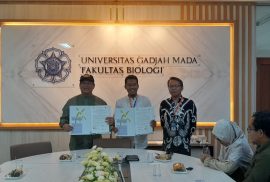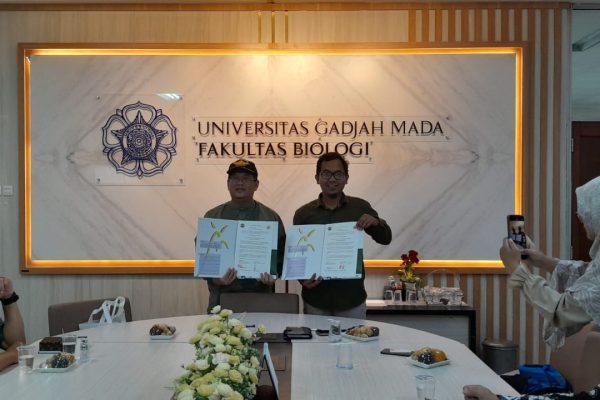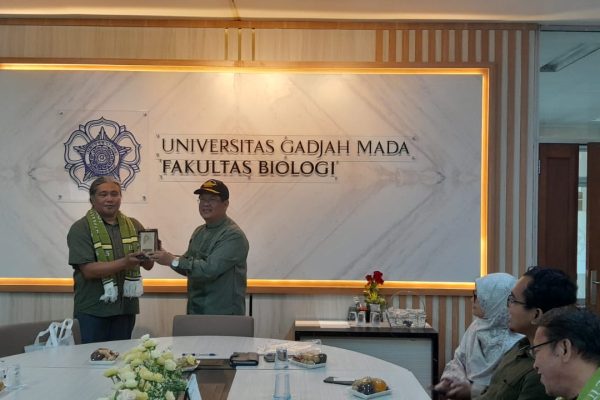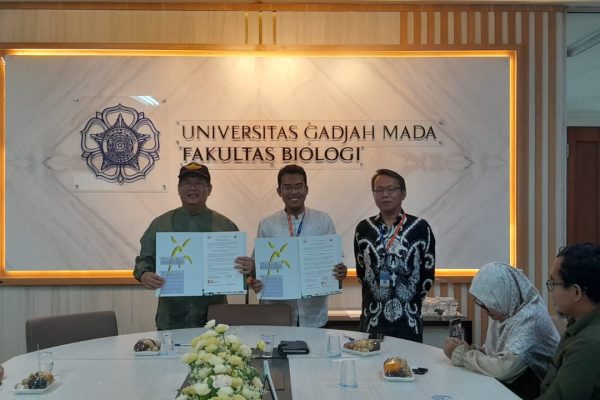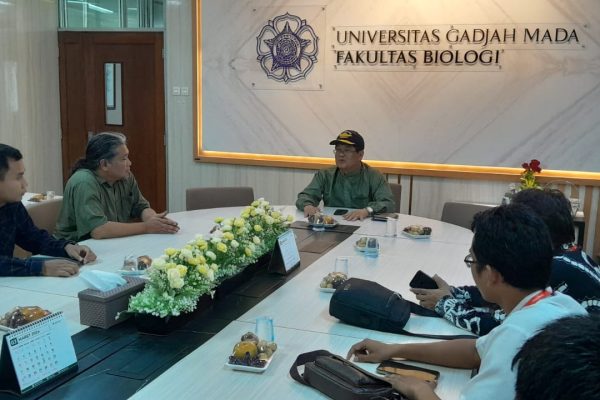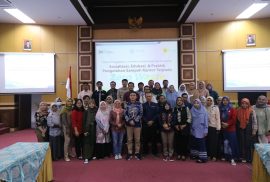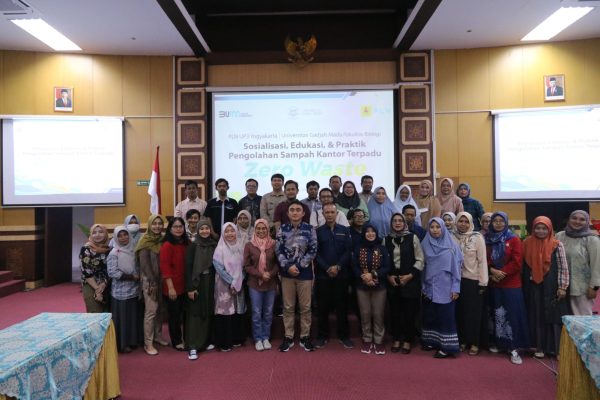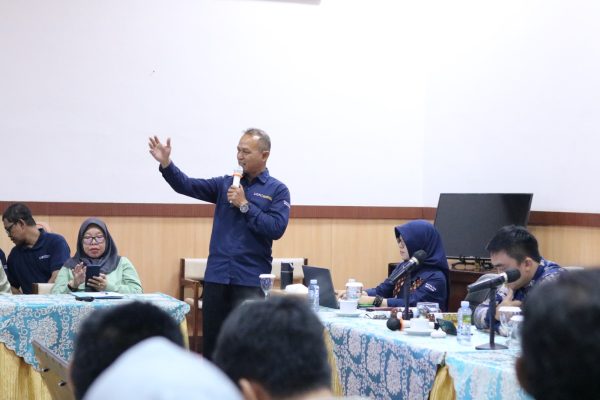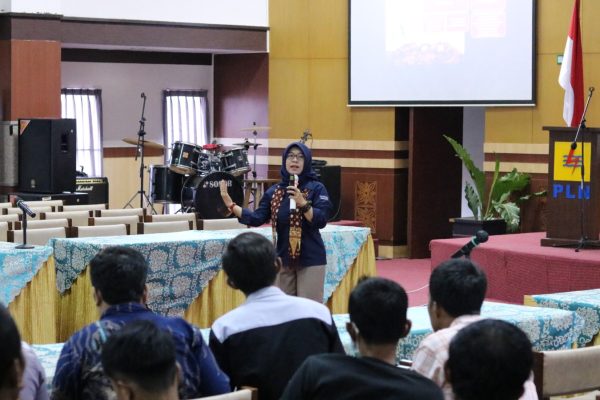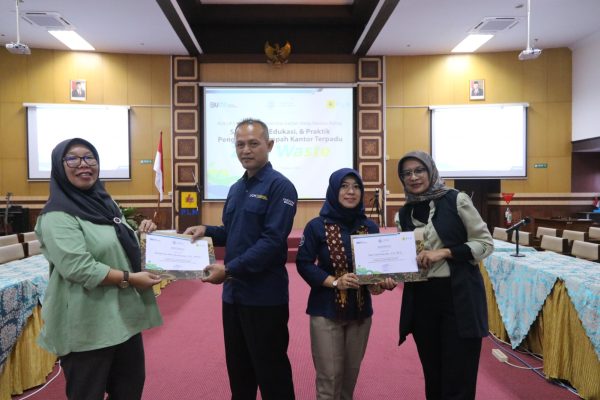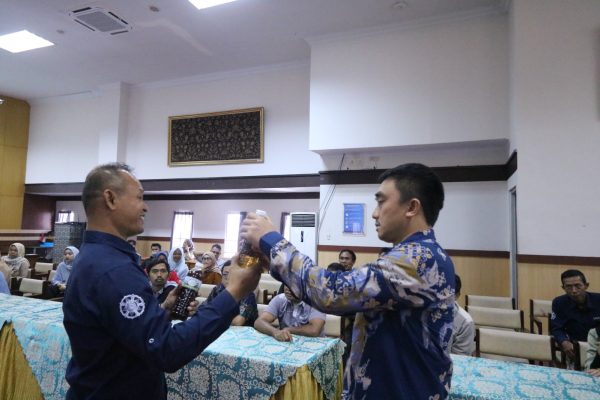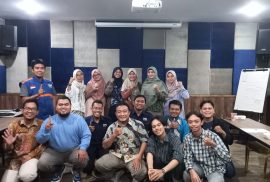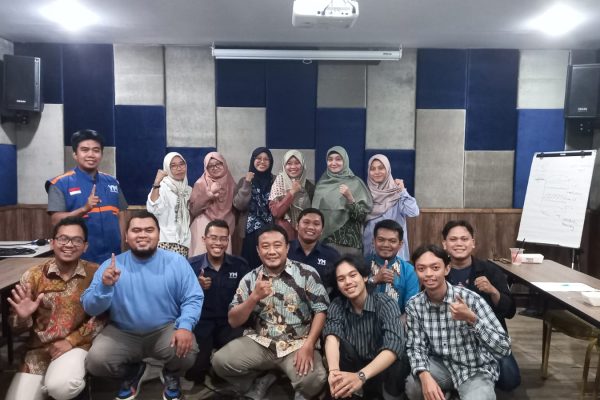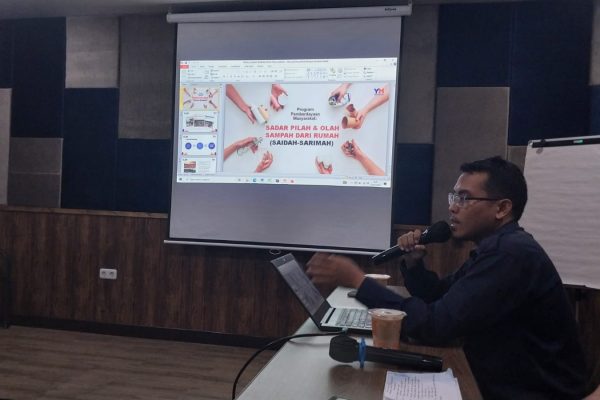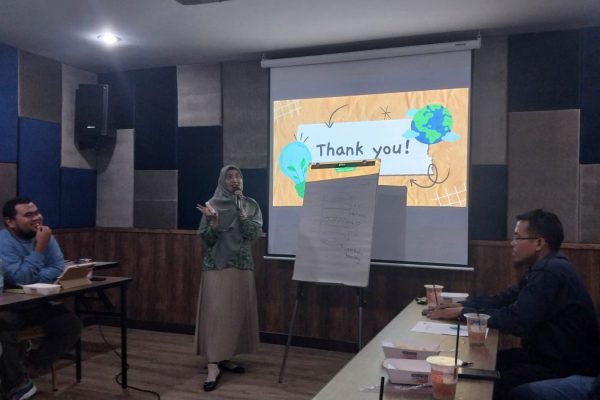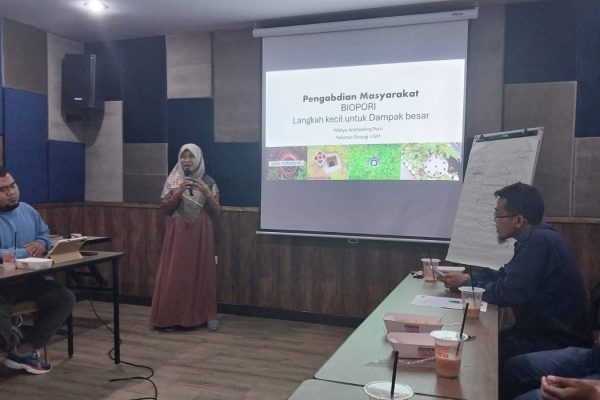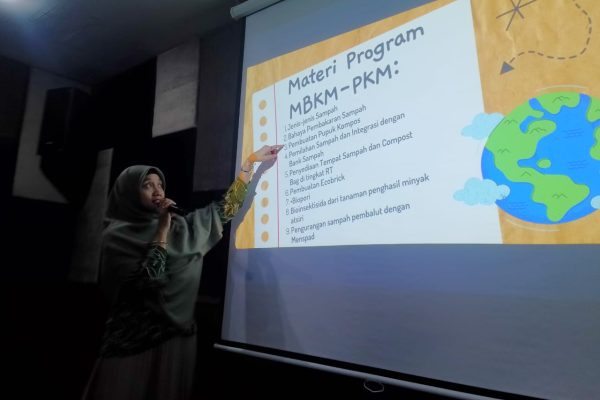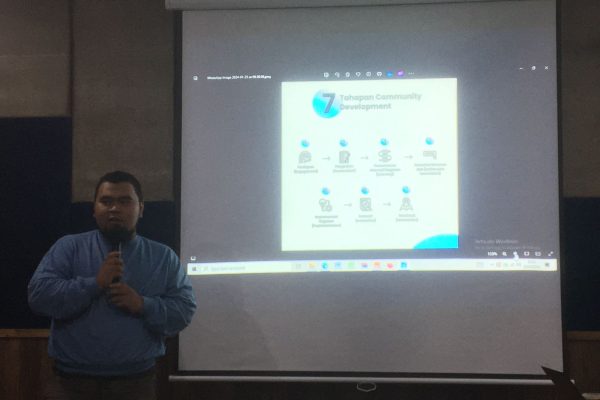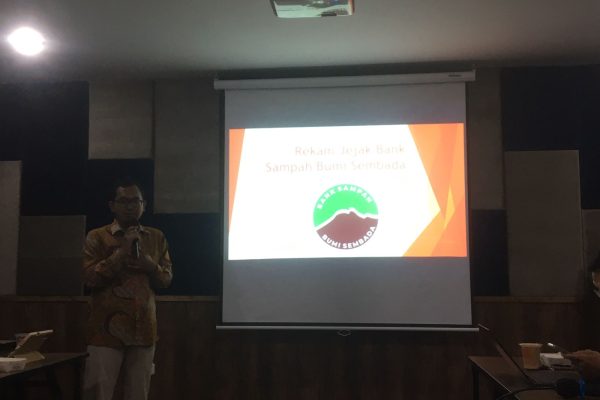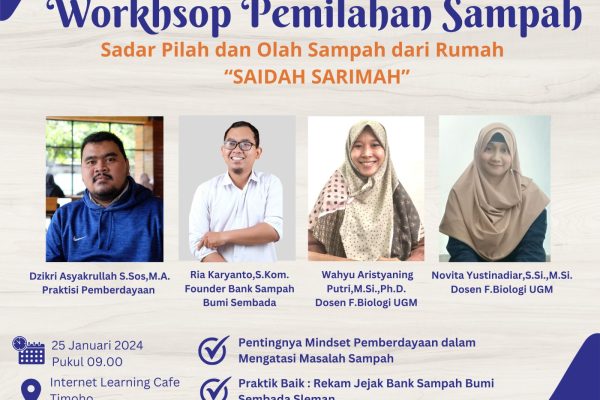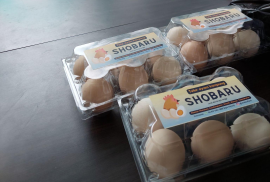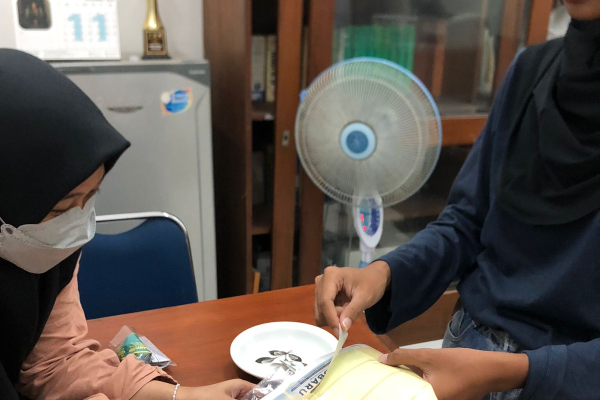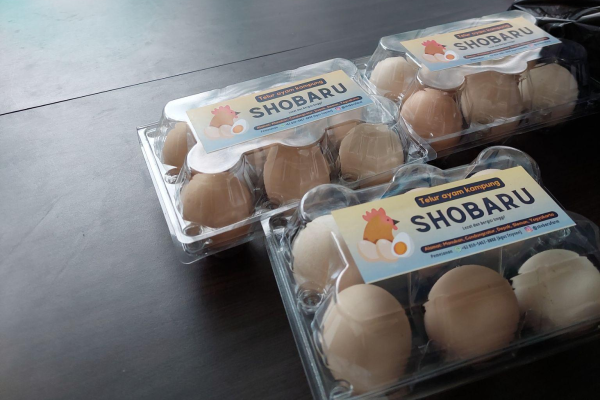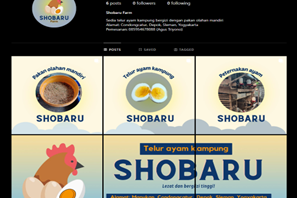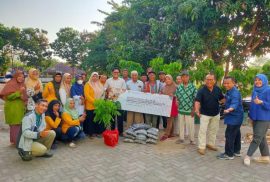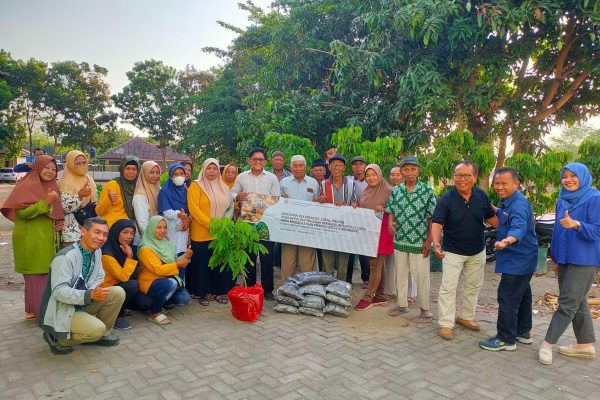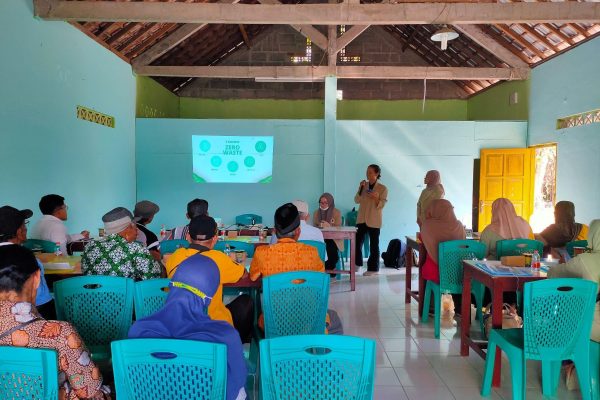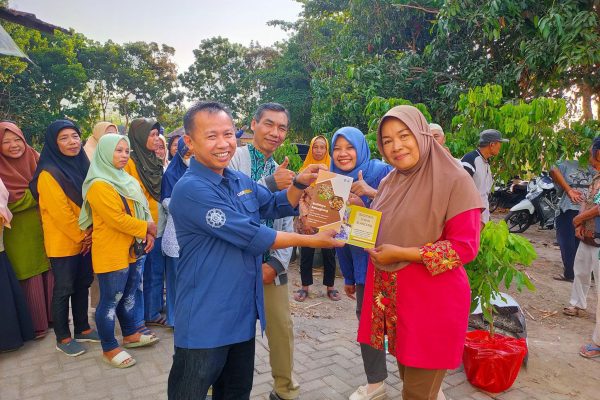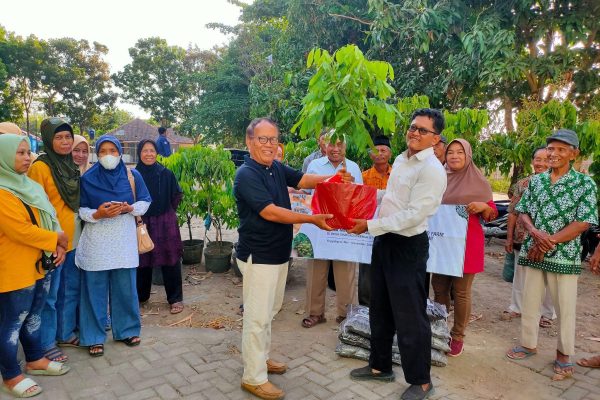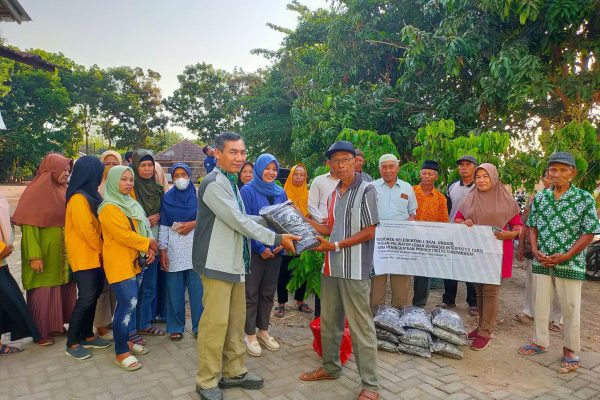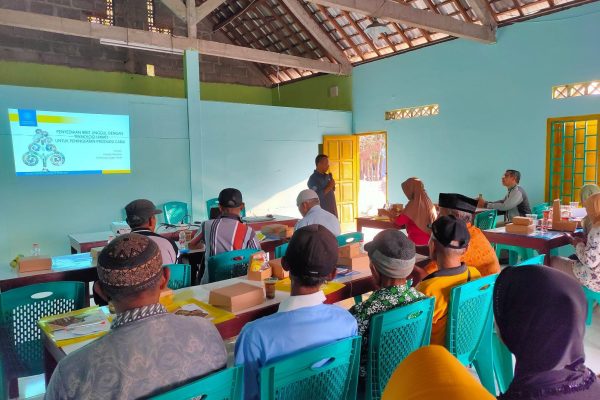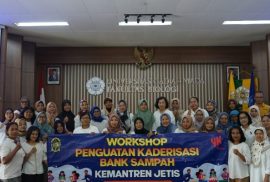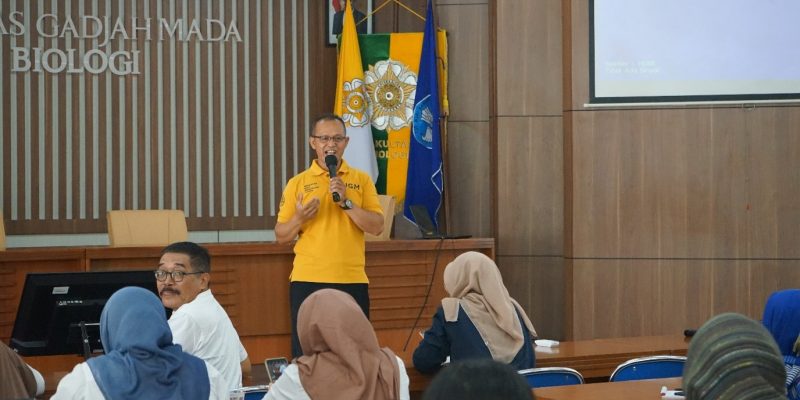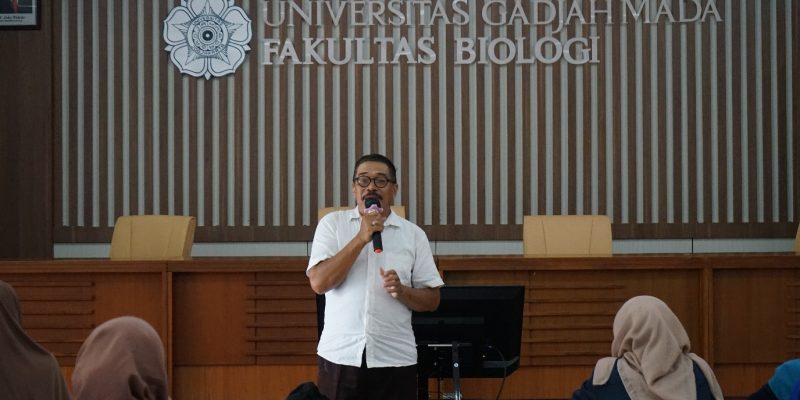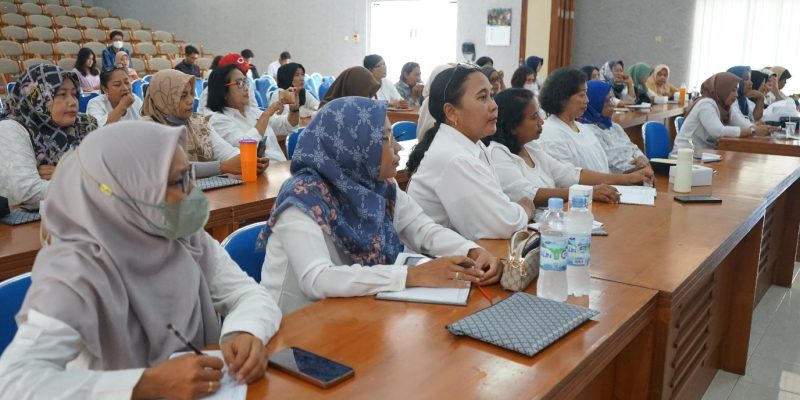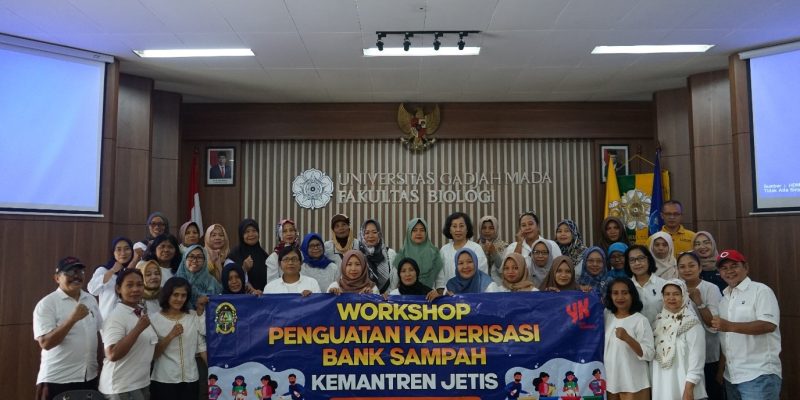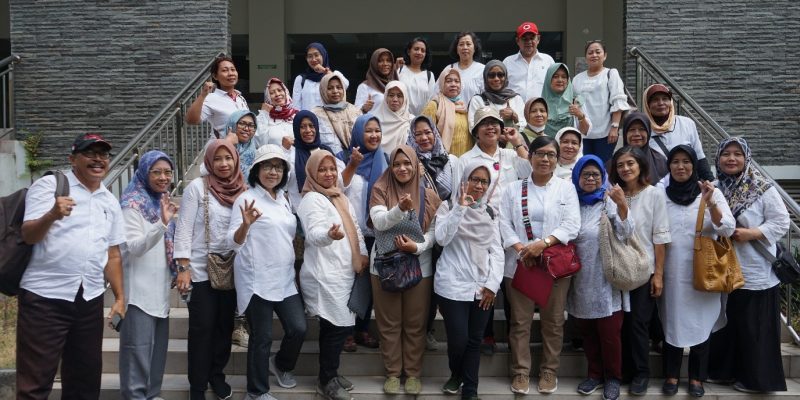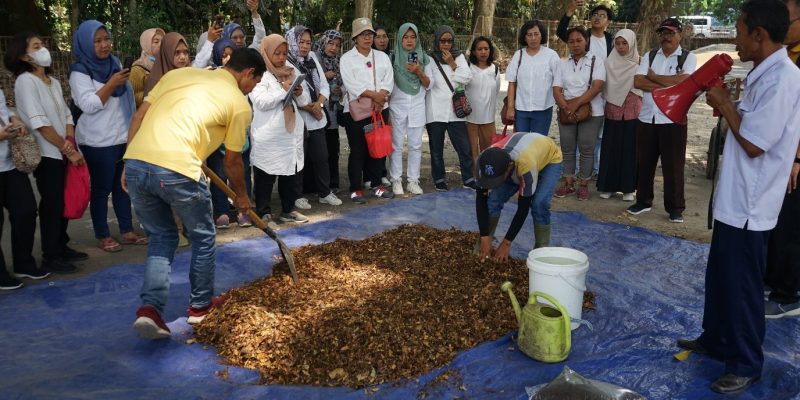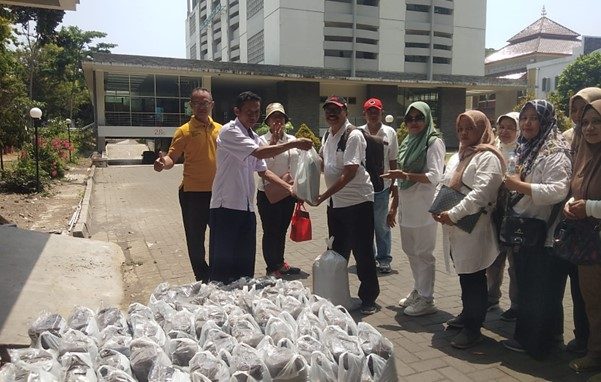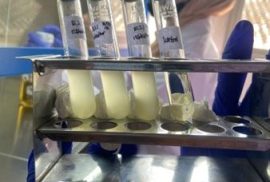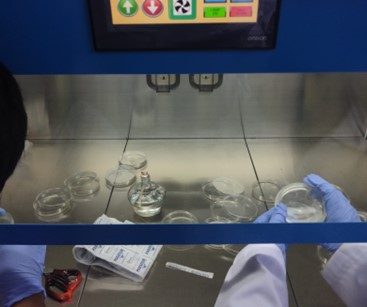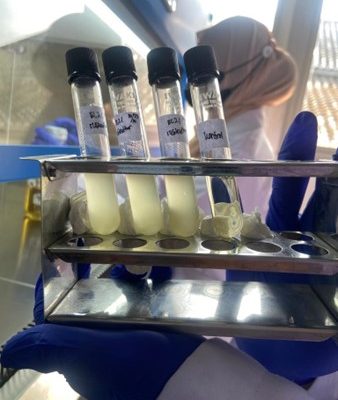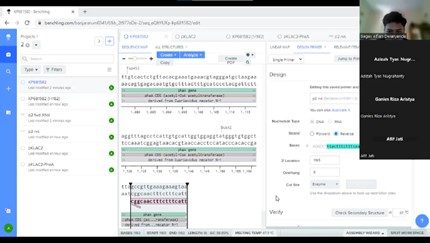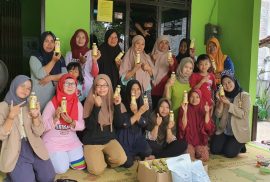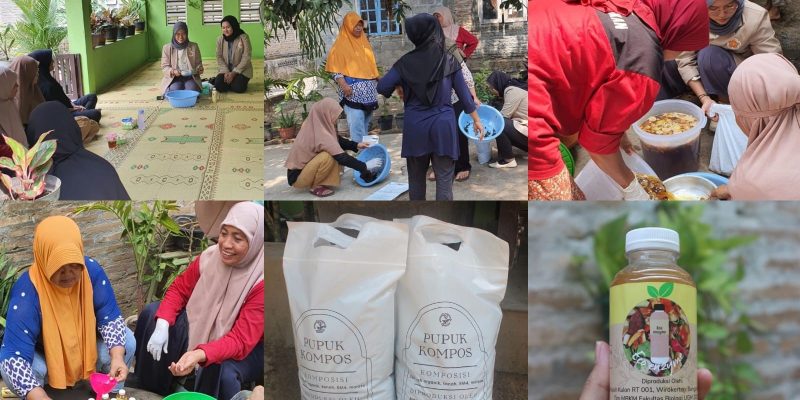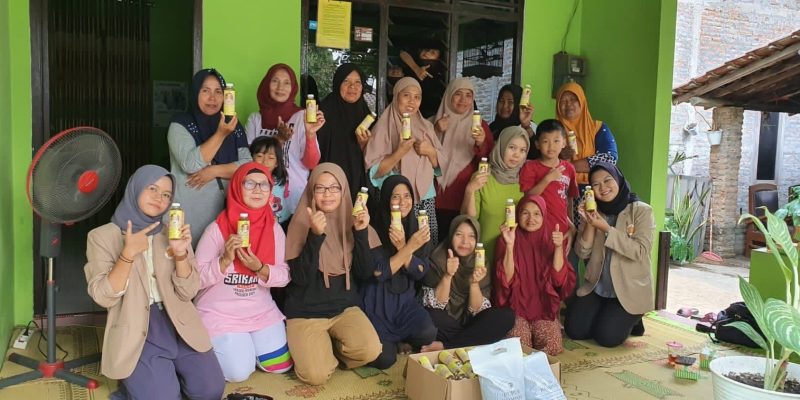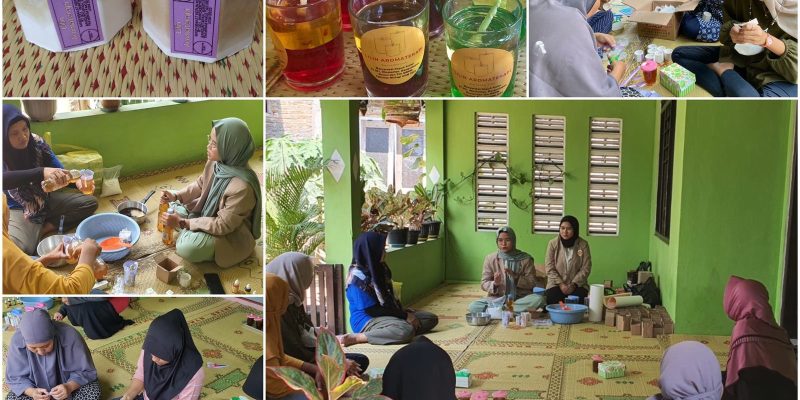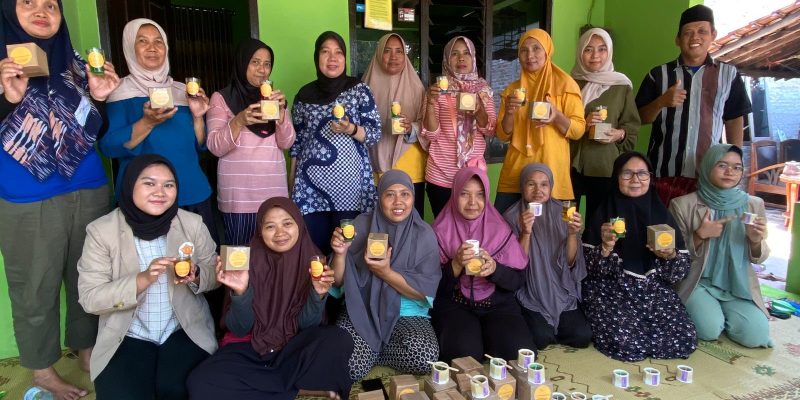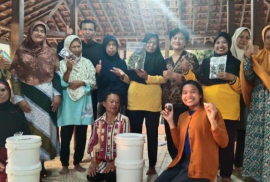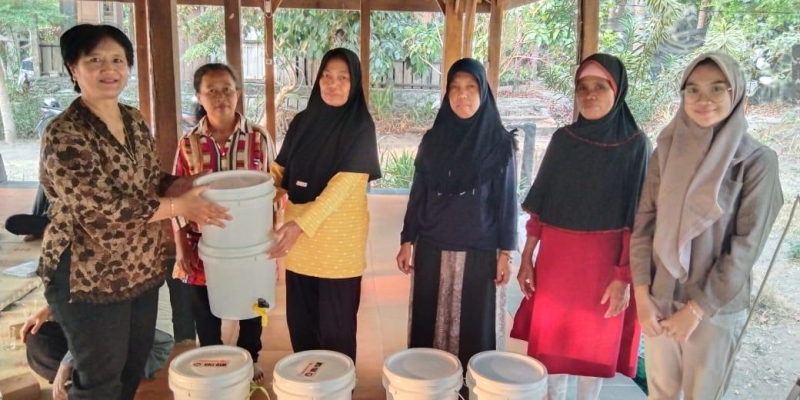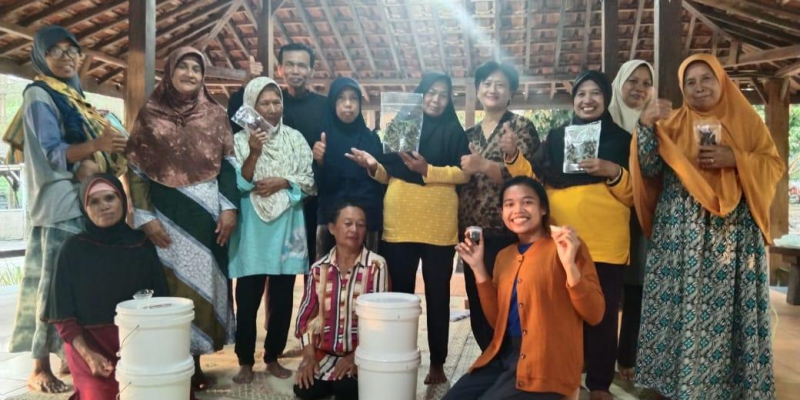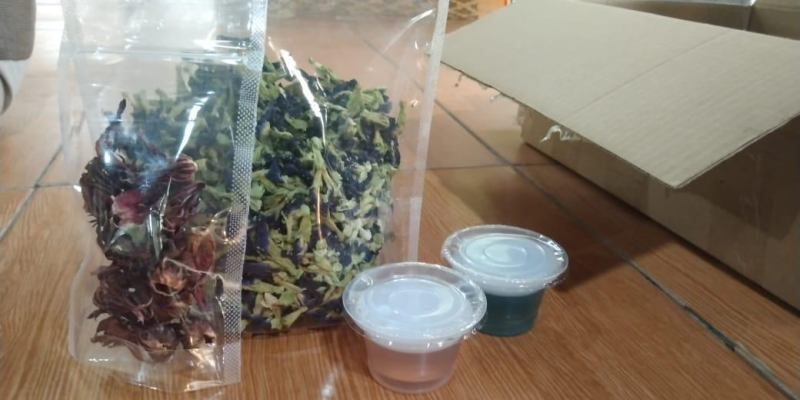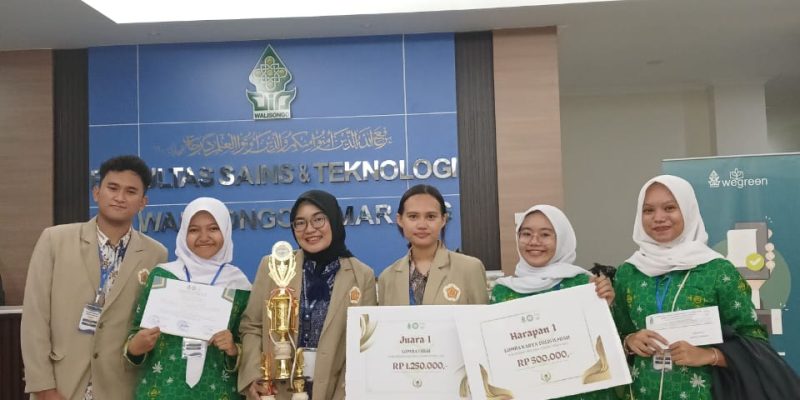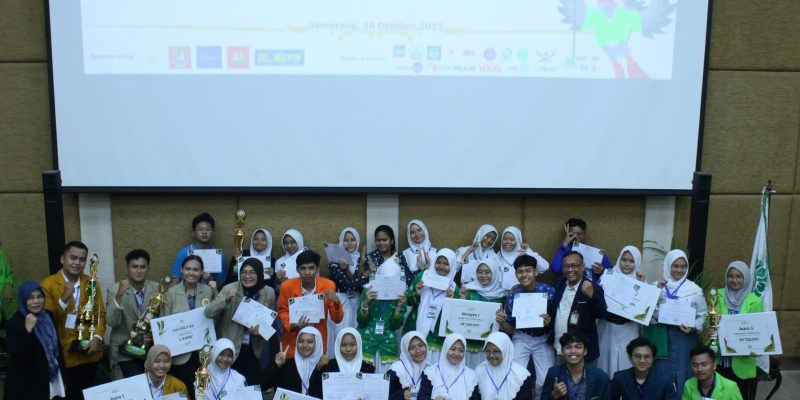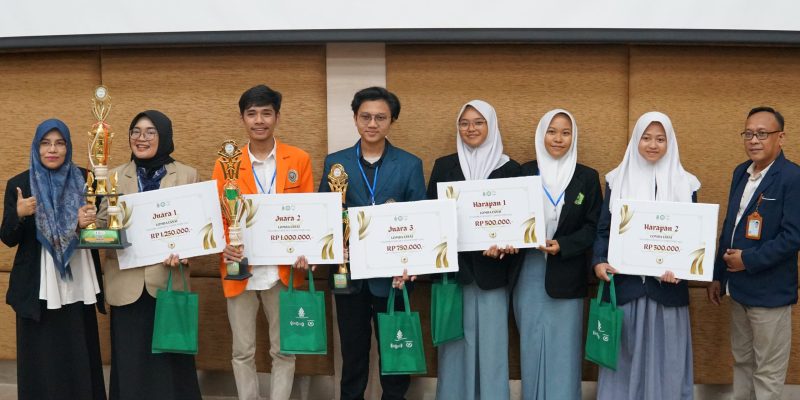SDG 3 : Establish Good Health and Well-Being
The team of Pengabdian Kepada Masyarakat – Merdeka Belajar Kampus Merdeka (PkM-MBKM) Faculty of Biology UGM 2023 that chaired by Rina Sri Kasiamdari, Ph.D. and involved two students, namely Galuh Kirana Mahadewi and Laila Uswatun Chasanah, carried out again a series of Community Service activities in Kepuh Kulon RT 001, Wirokerten, Banguntapan, Bantul. This activity is a continuity of the PkM-MBKM activities that have been carried out previously from February to June 2023.
The first activity of this PkM MBKM phase II was held on Sunday, October 8th 2023 from 09.00 to 11.00 WIB at the house of the neighborhood head of Kepuh Kulon RT 001, Mr. Zamzuri, and attended by 18 people of Kepuh Kulon RT 001. The activity on that day was packaging the compost and eco enzymes that had been made previously. First of all, Galuh and Laila gave a short explanation and demonstration about how to harvest and package the compost and eco enzyme. The compost was harvested by dried it for a while. After that, the compost could be packaged in a customized plastic ziplock. Unlike the compost, eco enzymes must be filtered between the fruits that are used and the water and then packaged in 250 mL bottles as much as 60 bottles. The compost that have been made is used for plant fertilization, while the eco enzyme is used for washing dishes, cleaning floors, repelling pests, cleaning vegetables and fruit from pests, and cleaning glass or glass surfaces. The compost and eco enzymes that are already packed and labeled are given to the Head of Wirokerten village and the Head of Hamlet. Hopefully, the skills of the women residents of Kepuh Kulon RT 001 in making compost and eco enzymes can become a reference in managing daily household waste, so that they can reduce the accumulation of waste and can make household waste more useful.
The second activity was about utilising used cooking oil (UCO) that become household waste into aromatherapy candles. It was held on Sunday, October 29th 2023 from 09.00 to 12.30 WIB at the house of the neighborhood head of RT 001 Kepuh Kulon, Mr. Zamzuri, and attended by 18 people of Kepuh Kulon RT 001. In this activity, the used cooking oil was made into solid aromatherapy candles and liquid aromatherapy candles. Tools and materials that used for making solid aromatherapy candles were used candle wick, wood holder, tea filter, plastic basin, pan, measuring cup, stove, cement pot, saucepan, cutting board, knife, spoon, used cooking oil, stearic acid, crayon, and essential oil, whereas the tools and materials that used for making liquid aromatherapy candles were glass cup, tissue paper, the cover of pudding cup, five different food colouring, water, used cooking oil, and essential oil. During the practice of making aromatherapy candles, we produced 100 solid aromatherapy candles and 25 liquid aromatherapy candles. All of them were distributed and could be used by the residents of Kepuh Kulon RT 001. Hopefully, the utilisation of UCO into aromatherapy candle could be one of the solution for reducing oil waste that can cause an environmental pollution and also could be a micro/small/medium enterprises (MSMEs) business idea for Kepuh Kulon RT 001 residents. The aromatherapy candles also distributed to the Head of the Hamlet, and the Head of Wirokerten Village. It is hoped that this PkM-MBKM program can provide new knowledge for Kepuh Kulon RT 001 residents in processing and utilizing household waste into more useful products.

